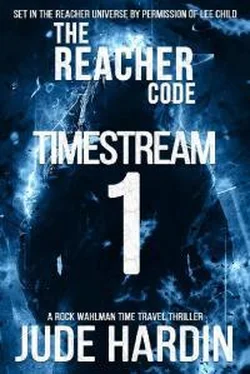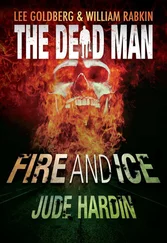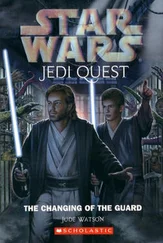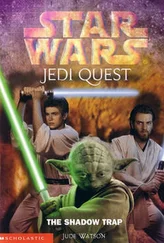“It’s a motorcycle,” Wahlman said. “I’ll get it back. But thanks.”
“Okay. Well, take care.”
“You too.”
Wahlman thought about asking her if she was married, but he didn’t. He climbed out, and she gave the horn a little tap as she drove away.
There was a wooden sign with a pair of floodlights shining up on it in the grassy area in front of the building. The sign said 86 thSecurity Forces Squadron Vehicle Towing and Impound. Wahlman followed the sidewalk to the entrance, pulled the door open and walked inside. A guy wearing the same kind of uniform the vault attendant had been wearing sat on a stool behind a long wooden counter. He had a haircut that probably only barely passed inspection and a mustache that probably didn’t. He looked like he might have spent some time in a gym at some point, but not recently. His belly had gotten a little too big for his shirt. He had a cigarette going in an ashtray and a snack cake on a napkin and a magazine spread open on his lap. The stitching above his right breast pocket said Breakstone. When he saw Wahlman approaching, he stood and closed the magazine and tossed it on the counter next to the telephone.
“Can I help you?” he said.
“I was told I could find my motorcycle here,” Wahlman said.
“You’re a civilian?”
“Yes.”
“Can I see your pass?”
“Pardon me?”
“Your pass to be on the base,” Breakstone said. “The paper they gave you at the front gate. We’ve been checking everyone since the attack. It’s a pain in the ass, but I guess it’s better than getting blown up.”
There it was again. The attack. Wahlman figured it must have been something significant, since everyone seemed to be talking about it. He figured he should find a newspaper soon and try to educate himself.
“I was a patient over at the hospital,” he said, reaching into his pocket and pulling out his wallet. “I don’t have a pass, but I have these.”
He handed Breakstone the ownership chits. Breakstone looked them over.
“They should have given you a pass when you were discharged from the hospital,” he said. “It’s probably in with the other papers they gave you. The prescriptions and whatnot.”
“I don’t have anything like that,” Wahlman said. “I have a driver’s license, and I have the receipts for my property. Seems like that should be enough.”
Breakstone looked down at the ID bracelet on Wahlman’s wrist.
“You were discharged, right?”
“Not exactly.”
“What’s that mean?”
“It means nobody told me I could leave,” Wahlman said. “But I left anyway.”
Breakstone took a drag on the cigarette.
“You had a right to do that, I guess,” he said. “You were a patient, not a prisoner. But you should have signed some papers first. Signing out AMA, they call it. Against medical advice. Then they would have given you a pass to be on the base for twenty-four hours. Then I could have given you your stuff.”
“I didn’t feel like waiting around,” Wahlman said. “And I didn’t feel like listening to any lectures.”
“I understand that, but—”
“I’m not going to walk all the way back over to the hospital.”
Breakstone shrugged.
“I can call someone to give you a ride,” he said. “Otherwise, I’ll have to call someone to escort you off the base. Sorry, but that’s just the way it is.”
“Why can’t I just walk over to the front gate and get a pass right now?” Wahlman asked.
“Technically, the base closed to civilian visitors at twenty-two hundred. Ten o’clock. That’s the mandate, and we’re under strict orders to enforce it. Again, because of the attack. You can come back at seven-thirty in the morning and—”
Wahlman slammed his hands on the counter.
“I want my motorcycle,” he said.
Breakstone seemed nervous. Like maybe he wasn’t accustomed to dealing with situations like this. Like maybe he hadn’t been in law enforcement for very long.
“Sir, I’m going to have to ask you to step back from the counter and put your hands behind your head,” he said, unconvincingly, the quiver in his voice somewhat negating the Security Forces emblem stitched to his pocket.
Wahlman didn’t step back from the counter, and he didn’t put his hands behind his head.
“Just give me the bike,” he said. “Then I’ll be on my way.”
“I don’t have time for this bullshit,” Breakstone said.
He reached for the phone. Wahlman grabbed his wrist before he made it to the handset.
“I don’t have time for this bullshit either,” Wahlman said. “All I want is what’s rightfully mine.”
Breakstone struggled to break the hold. When it became obvious that he wasn’t going to be able to, he pulled the semi-automatic pistol from the holster on his hip and pointed it at Wahlman’s face.
The gun was a Colt M1911 ACP. Wahlman didn’t know how he knew that, only that he did. He also knew that if one of the .45 caliber rounds exploded out of the barrel on its supersonic way toward the front of the building, it would take a good portion of his head with it.
But that wasn’t going to happen. A round wasn’t going to explode out of the barrel. Not right now. Because Breakstone hadn’t clicked the safety off. Which meant that the trigger was locked. Which meant that Wahlman’s next move wasn’t quite as insane as it would have been otherwise. He grabbed the barrel of the pistol and shoved it forward, viciously slamming the rear sight into the middle of Breakstone’s forehead. It was a brutal, say-goodnight-and-lock-the-door strike, the impact probably substantial enough to leave a permanent dimple in Breakstone’s skull.
Bright red blood trickled down the center of his face. He staggered backward and his eyeballs rolled back into his head and he collapsed onto the wooden floor with a heavy thump.
Wahlman walked around to the other side of the counter, picked the pistol up and slid it into his waistband.
Then he started looking around.
He found a logbook that listed all of the vehicles that had been impounded so far for the month of October. He thumbed through and found the page for the twenty-fifth, found an entry that matched the information on his chit.
Breakstone’s keys were on a retractable keychain on his belt. There were probably twenty of them, all shapes and sizes. Wahlman grabbed them and ferreted through some drawers and found a flashlight and walked outside.
A heavy chain and a padlock secured the gate to the impound lot. Wahlman sorted through the keys and slid a few of them off the ring, the ones that looked like they might match the lock. None of them did so he started trying some of the others and finally found the right one. He popped the lock and unwrapped the chain and walked around with the flashlight for a while and found the motorcycle and the helmet under a blue tarpaulin.
The front tire seemed a little low, but otherwise the bike looked okay. Wahlman slid the key into the ignition switch, which appeared to be some kind of aftermarket addition.
The engine started right up.
Wahlman put the helmet on and kicked the bike into gear and slung a respectable amount of dirt and gravel on his way back to the front of the lot. He left the flashlight and the pistol and the keys in a little pile at the edge of the fence, and then he motored on up to the front gate and second-geared it past the guard shack and took a right on the highway.
Nobody tried to stop him.
5
Stahler had been working in shifts, alternating with an operative named Nilke. Twelve hours on, twelve hours off. It was starting to get to him. The human body just wasn’t built for this shit, he thought, for this many spins in such a short amount of time. Not to mention the medications, the pills you had to swallow every time you moved from one time period to another. No telling what those things did to your liver.
Читать дальше












